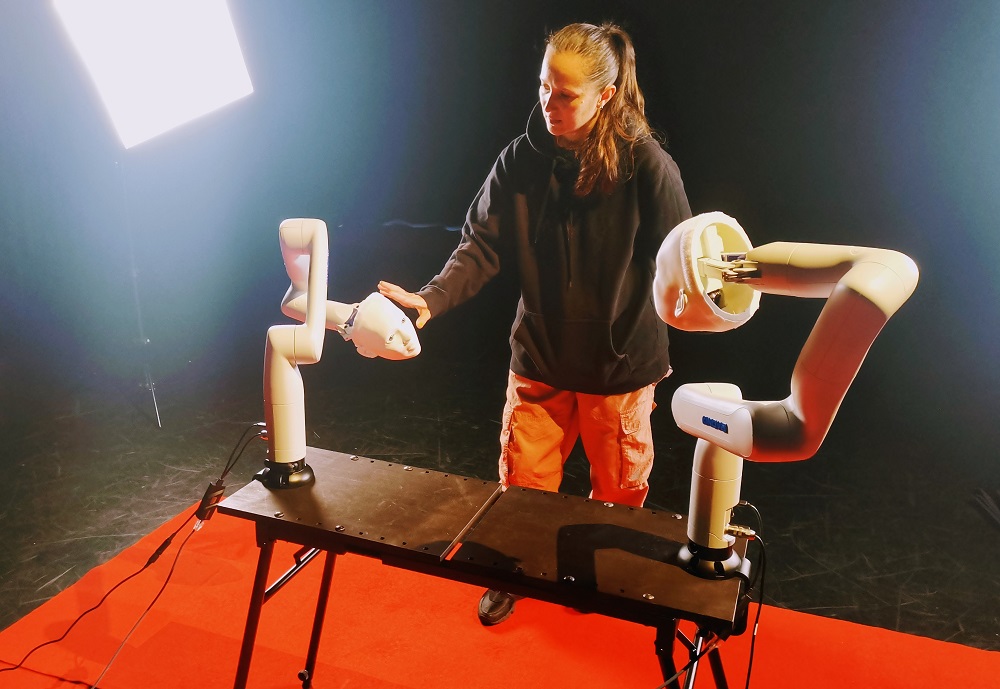Suzanne Lazaroo
22 November 2022: Launched yesterday by the University of Canberra’s Associate Professor in Robotics Dr Damith Herath, Foundations of Robotics: A Multidisciplinary Approach with Python and ROS encompasses art, culture, psychology, history and more, and takes a globally unique cross-discipline perspective to reflect the growth and reach of robotics.
“Robots are no longer ‘caged’, or in the background of our lives – from self-driving cars to robot cleaners, they’re part of our everyday and they impact us all,” said Dr Herath, who co-edited the book with David St-Onge of École de technologie supérieure (ETS) Montreal.
Foundations of Robotics is the first book to define a body of knowledge for robotics, and it originated from Dr Herath’s extensive work with artists and other multi-disciplinary experts.

“I was constantly asked to recommend a book that could provide a foundational overview of robotics – but while there were great books on very specific areas, there just wasn’t one across disciplines,” he said.
“Foundations of Robotics reflects how the field has transcended engineering – even hardcore engineers appreciate that there are soft edges to robotics that we need to be aware of.”
In his foreword for the new book, globally-renowned roboticist Ken Goldberg proclaimed that it “… provides the ‘foundation’ for understanding how robots work. It is the accessible introduction that artists and engineers have been waiting for.”
The chapters are written by experts from various fields – artists, psychologists, industrial designers and roboticists alike contextualise the human face of robotics, both in industry and application. These include researchers from the Faculties of Education, Health and Arts and Design.
“Many of the chapters include interviews with people from within the robotics industry, who talks not only about how they got into robotics but how their work relates to the material covered in the chapter, providing additional insights into the field of robotics,” Dr Herath said.
A dedicated student team from the University also put together teaching labs that can be downloaded and run by readers.
The book is open access and free to download, thanks to a grant from industry leader Kinova Robotics.
“As recently remarked by prominent AI researcher Andrew Ng, when people first became literate in the 1800s, knowledge – and therefore, power – spread beyond the elites. Today, power is held by the technocrats, so a book like this further democratises knowledge – and I’m very proud of that,” Dr Herath said.
Foundations of Robotics: A Multidisciplinary Approach with Python and ROS can be accessed here.
Book cover design: Laurent Pinabel
Image: Judy, a robotic art installation by Melanie Lane


